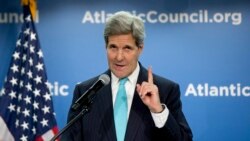The question is not whether the Earth’s climate is changing, but how are we going to adjust to the effects of climate change. “Climate change poses a threat to every country on Earth, and we all need to do what we can to take advantage of the small window of opportunity we still have to stave off its worst, most disastrous impacts,” wrote Secretary of State John Kerry in a recent statement.“But even as we take unprecedented steps to mitigate the climate threat, we also have to ensure our communities are prepared for the impacts we know are headed our way.”
Located at the end of the Ganges and Brahmaputra drainage basins, and with much of its area comprised of low-lying coastal plains, Bangladesh has a long history of disastrous flooding. At about 1,000 people per square kilometer, it has the world’s highest population density per square kilometer. Morever, 80 percent of the country’s population depends on agriculture as a source of income. All of these factors combine to make Bangladesh one of the most vulnerable to the impacts of climate change.
This is expected to worsen as climate change exacerbates extreme weather events such as monsoon rains and cyclones, and as sea levels rise with the melting of the ice caps. Some experts estimate that Bangladesh could lose 2-3 percent of GDP growth due to the effects of climate change. Bangladesh must prepare for the changes, but as a developing country with about half of its population living in poverty, it is finding the going difficult.
That is why Bangladesh is one of the three countries—along with Colombia and Ethiopia--targeted for climate readiness assistance in the first phase of President Barack Obama’s new Climate Services for Resilient Development initiative.
This international public-private partnership will work with developing nations to help them boost their own climate resilience by providing them with science relevant to their situation, information, useful tools, and training. The initiative will concentrate on adaptation to changing conditions. And as the program matures, more countries will be invited to participate.
“When it comes to confronting climate change, no country should be forced to go it alone – because no country can possibly address this threat alone,” said Secretary of State Kerry.“It will require all of us – every country, around the world, doing what it can to contribute to the solution.”






